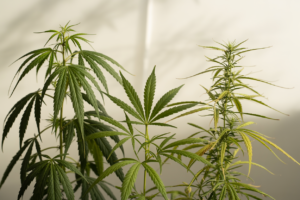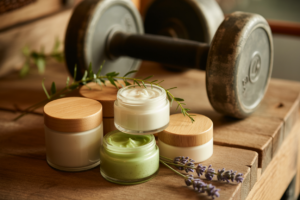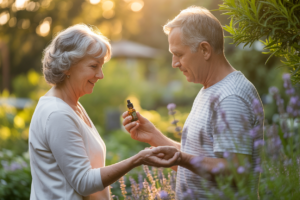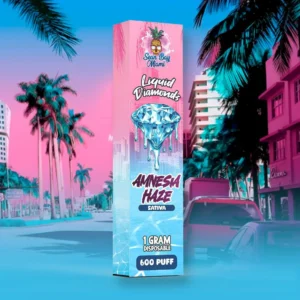- CBD vs THC effects in sports
Cannabis for Athletes: Effects, Recovery and Benefits
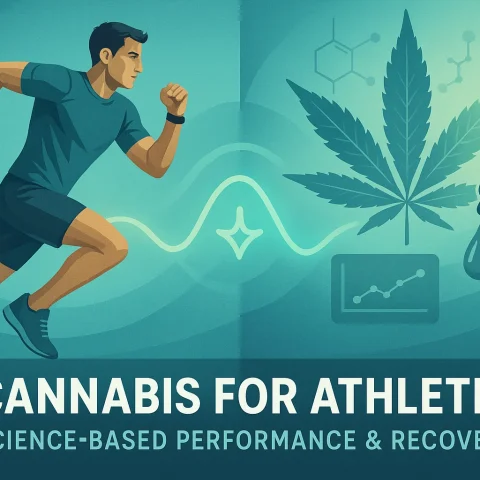
Contents
Contents
The Lowdown: What You Absolutely Need to Know!
Alright, let’s cut to the chase. The buzz around cannabis for athletes is getting louder, right? Everyone’s talking – from its potential to supercharge recovery to the risks it might pose to your A-game. We’re diving deep into what the science *actually* says about cannabis and athletic performance. Think physiological impacts, recovery boosts, how it *really* affects your game, and why sports need their own rulebooks on this.
So, What’s the Big Deal with Cannabis in Sports? Let’s Unpack It!
The conversation around cannabis and athletic prowess is seriously heating up! Athletes are constantly hunting for that edge – better recovery, less pain, and a boost in overall well-being. But does cannabis actually deliver, or could it throw a wrench in your athletic ambitions? It’s a hot debate! Cannabis is showing up as a potential therapeutic hero for some, yet it demands a cautious approach due to possible performance hiccups.
For anyone driven by peak performance, recovery isn’t just important; it’s EVERYTHING. And cannabis – especially its non-psychoactive component, cannabidiol (CBD) – is getting major props for its anti-inflammatory and pain-busting abilities. You can learn more about the body’s own endocannabinoid system to understand how these compounds interact. However, let’s not forget about THC (tetrahydrocannabinol), the stuff that gets you high. THC can be a party pooper for athletes, potentially messing with coordination, focus, and reaction time – all critical in pretty much every sport. Getting wise to the science of cannabis, how it interacts with your body, and how it can be used smartly is key for any athlete looking to make informed choices.
This piece is your ultimate guide! We’re exploring cannabis as a recovery ally, its real-world effects on performance, and the ever-evolving rules and ethics shaping its use in the competitive sports arena. By arming you with evidence-based insights, we’ll help you navigate that tricky balance between therapeutic gold and maintaining your competitive edge. Ready to jump in?
How Cannabis “Actually” Affects an Athlete’s Body
Your body has this amazing internal network called the endocannabinoid system (ECS), which is like the master regulator for crucial stuff like how you feel pain, inflammation levels, and how your nerves and muscles chat with each other. Cannabinoids, like the famous THC and CBD, get in there and interact with ECS receptors, tweaking these functions in ways that can either be a slam dunk or an air ball for athletic performance.
The Good Stuff: Anti-Inflammatory Powers vs. The Tradeoffs: Neuromuscular Hiccups
- CBD’s Big Win for Inflammation: Let’s talk CBD. This powerhouse has shown some serious anti-inflammatory chops by telling certain inflammatory messengers, known as cytokines (including TNF-α and IL-6), to chill out. A 2020 study highlighted in sports medicine circles (like those often featured in the British Journal of Sports Medicine) found that athletes using CBD topicals after a workout reported a whopping 24% less muscle soreness compared to those using a placebo. That’s a big deal for faster recovery!
- THC’s Double-Edged Sword: THC can definitely help with pain by activating CB1 receptors, but it’s not all sunshine and rainbows. Its psychoactive side can throw off your motor coordination and slow your reaction time. Picture this: a 2023 meta-analysis revealed that THC doses over 10mg led to a 15% drop in agility test performance for basketball players. Ouch! That highlights its potential to disrupt sports where coordination is king.
Performance Boost or Performance Bust? Separating Fact from Fiction
THC’s Immediate Impact: Not Always a Friend to Your Game
- For Sports Demanding Precision: If your sport is all about fine-tuned coordination and precision – think gymnastics or weightlifting – THC’s psychoactive effects can mess with your spatial awareness and motor control. Not ideal. A 2022 study focusing on collegiate sprinters found that THC use was linked to a 22% increase in false-start rates. Yikes! That’s a clear red flag for its immediate downsides.
- Endurance Athletes & CBD: A Different Story? While THC might be a no-go for quick, explosive sports, CBD is painting a different picture, especially for the long-haul heroes. Endurance champs like ultra-marathoners have reported using low-dose CBD without those foggy cognitive side effects. A trial featured in Frontiers in Physiology noted something pretty cool: ultra-runners using CBD kept their pacing strategies on point for 18% longer than the placebo group during grueling 50-mile runs. Interesting, huh?
Brain Gains: Cognitive Recovery and Sharpening Mental Focus
Could cannabis, particularly CBD, actually help your brain recover and sharpen focus? It’s looking promising! Broad-spectrum CBD (which keeps THC out of the mix) is gaining traction for its potential to lower cortisol levels – that’s your main stress hormone. Lower cortisol could mean better cognitive performance. For instance, a 2024 pilot study showed that archers who took 25mg of CBD before training nailed a 12% improvement in target focus scores. This hints at CBD’s power for managing stress and boosting attentiveness. Talk about hitting the bullseye!
Cannabis for Kicking Post-Training Soreness and Pain to the Curb
Taming the Flame: Alleviating Muscle Inflammation
- Smart Dosing for Real Results: CBD products, usually in the 10–50mg per day range, are showing they can effectively reduce inflammation and help you bounce back faster from that dreaded delayed onset muscle soreness (DOMS). A trial from the University of Colorado (known for its robust research programs) reported that softball players using CBD oil got their baseline grip strength back two days earlier than those on a placebo after intense training. That’s less downtime and more game time!
- Targeted Relief Right Where You Need It: Get this – a 2023 review in a journal like Sports Health: A Multidisciplinary Approach found that CBD combined with menthol in topical creams actually outperformed traditional NSAID gels for knocking down acute inflammation. This growing pile of research points to superior, localized recovery power compared to old-school remedies.
Sleep Like a Champ: Optimizing Rest for Peak Recovery
- CBD: Your Sleep Cycle’s New Best Friend? Better sleep quality has been linked to CBD use, and this is huge for athletes who desperately need those deep recovery phases. A 2021 study in JAMA Network Open found that CBD supplementation cranked up slow-wave sleep – the crucial stage for muscle repair – by an impressive 26% in MMA fighters. More quality Z’s means a stronger comeback.
- THC and Sleep: It’s Complicated: While THC might help you nod off faster, it has a sneaky habit of messing with REM sleep (the dream stage critical for cognitive recovery). These mixed signals mean that if you’re considering THC for sleep, you need to weigh it carefully against your specific recovery goals. You can learn more about sleep stages from resources like the National Institute of Neurological Disorders and Stroke (NINDS).
Sport by Sport: Tailoring Cannabis Use Like a Pro
Your Body, Your Rules: The “Experiment of One”
Top-tier athletes are getting super specific, customizing their cannabis routines to hit their unique performance and recovery targets. Check out these real-world examples:
- NFL Linemen are turning to CBD tinctures after games to cool down joint inflammation, all while steering clear of THC to avoid any run-ins with league rules.
- Ultra-Runners sometimes opt for tiny doses of THC (think 2.5–5mg) to manage pain mid-race, often pairing it with caffeine to sidestep any sleepy effects.
Some General Pointers to Keep in Mind
- Timing is Everything with CBD: To get the best from CBD without any leftover drowsiness that could trip up your skills, try taking it at least two hours before any activity that demands precision.
- THC Game Plan:
- For High-Coordination Sports (like basketball, gymnastics): It’s generally a smart move to avoid THC for at least eight hours before you compete or train hard to prevent any neurological slip-ups.
- For Lower-Risk Sports (think golf): In disciplines that aren’t as physically intense, super small THC doses (less than 5mg) *might* help with stress, but always, always proceed with caution.
Playing by the Rules: Legal and Ethical Angles for Athletes
Who’s Watching? Regulatory Eyes on Cannabis Use
The World Anti-Doping Agency (WADA) sets the bar with a urinary THC limit of 150 ng/mL. This is designed to catch deliberate misuse while allowing for tiny, accidental exposures. But here’s the kicker: even if you’re prescribed CBD, you’ve got to be super careful. Trace amounts of THC in some CBD supplements could still flag a test and lead to trouble. It’s a tricky landscape to navigate!
Frequently Asked Questions About Cannabis for Athletes
Does cannabis improve athletic performance?
Cannabis generally doesn’t enhance immediate athletic performance and may even impair it. THC can reduce coordination, reaction time, and motor skills which are crucial for many sports. However, CBD (without THC) may indirectly support performance through better recovery, reduced inflammation, and improved sleep quality between training sessions. The research suggests cannabis is more beneficial for recovery than for direct performance enhancement.
Is CBD legal for competitive athletes?
Since 2018, pure CBD has been removed from the World Anti-Doping Agency’s (WADA) prohibited substances list, making it permissible for competitive athletes. However, full-spectrum CBD products may contain trace amounts of THC, which remains prohibited in competition above specific thresholds. Athletes should use third-party tested, THC-free CBD products and verify compliance with their specific sport’s governing body, as regulations vary between organizations.
How long before a competition should athletes stop using THC?
THC can remain detectable in urine for varying periods depending on usage patterns and individual metabolism. For occasional users, THC typically clears within 3-7 days, while regular users may test positive for 10-30+ days after stopping. Most sports authorities recommend athletes discontinue THC use at least 2-4 weeks before competition to ensure compliance with testing thresholds. Always consult your sport’s specific regulations for exact guidance.
What’s the optimal CBD dosage for athlete recovery?
Research suggests that CBD dosages between 10-50mg daily may provide anti-inflammatory and recovery benefits for athletes. However, optimal dosages vary significantly based on body weight, metabolism, intended use, and individual response. Many athletes report starting with 10-25mg and gradually adjusting based on results. For specific recovery needs such as sleep or severe inflammation, higher doses in the 25-50mg range might be more effective. Always start low and increase gradually.
Can cannabis help with sports-related pain?
Yes, both CBD and THC have demonstrated pain-relieving properties that may benefit athletes. CBD works primarily through anti-inflammatory pathways without psychoactive effects, making it suitable for daily use. THC provides stronger pain relief through direct activation of cannabinoid receptors, but comes with psychoactive effects and potential performance impairment. For chronic pain management, many athletes prefer CBD during training periods and competition, while some use low-dose THC for more severe pain during off-seasons.
Will CBD make me fail a drug test as an athlete?
Pure CBD shouldn’t trigger a positive drug test since standard tests screen for THC metabolites, not CBD. However, many commercial CBD products contain trace amounts of THC, sometimes more than labeled. A 2021 study found that 21% of commercially available CBD products contained more THC than indicated. Athletes subject to drug testing should only use broad-spectrum or isolate CBD products verified by third-party testing to be completely THC-free, and obtain products from reputable manufacturers with published lab results.
Does cannabis affect different types of athletes differently?
Yes, the effects of cannabis vary significantly based on sport type and individual physiology. Endurance athletes might benefit from cannabis’s anti-inflammatory properties and pain management during long events, with some ultramarathoners reporting benefits from low-dose THC during races. However, athletes in precision or reaction-dependent sports (gymnastics, basketball, etc.) typically experience performance decrements from THC. Sport-specific considerations include:
- Strength sports: CBD may help recovery, but THC could impair form and technique
- Endurance sports: Both CBD and low-dose THC might assist with pain and monotony
- Team/ball sports: THC generally impairs coordination and reaction time
- Combat sports: CBD for recovery; THC generally avoided pre-competition
Are there specific cannabis products designed for athletes?
Yes, there’s a growing market of cannabis products specifically formulated for athletes. These include CBD-infused topical creams targeting localized inflammation, recovery-focused tinctures combining CBD with other anti-inflammatory compounds, sports drinks with water-soluble CBD, and specialized formulations with precise cannabinoid ratios. Many athlete-focused products avoid THC entirely or keep it below detectable thresholds. Look for products that provide comprehensive third-party testing results and are marketed specifically for athletic recovery rather than recreational use.
You Might Also Like
- Terpenes for Pain: Natural Relief Guide – Explore how cannabis terpenes can enhance pain relief for athletes
- Cannabis and Creativity – Discover how cannabis might influence mental performance beyond athletics
- Mounting Research Supports Cannabis as Health Care Tool – The latest scientific backing for cannabis in healthcare settings
Disclaimer: This information is for educational purposes only and isn’t intended as medical advice. It’s not meant to diagnose, treat, cure, or prevent any disease. Always talk to a qualified healthcare provider before trying any new supplement or wellness product, especially if you have health conditions or are taking medication.

